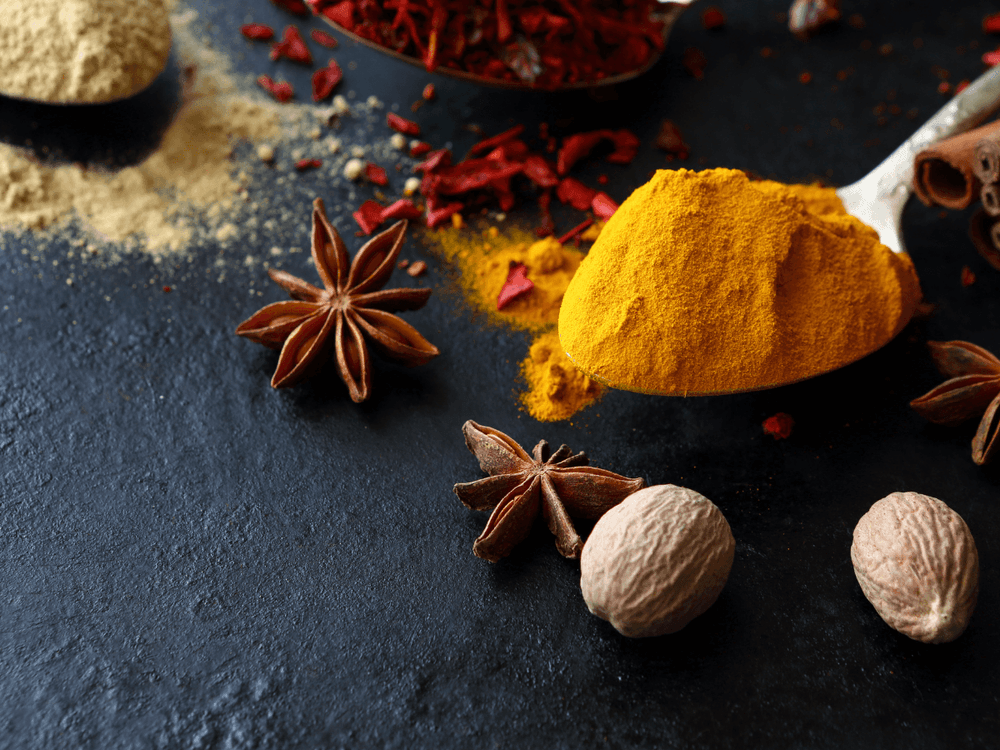Avec une surface totale de près de 200 m2, notre intestin représente une vaste zone d’échange dont la muqueuse constitue la première ligne. Cette muqueuse joue un rôle essentiel dans l’absorption des nutriments de notre alimentation, dans la digestion, mais aussi dans la protection de notre organisme. Plus ou moins perméable, la muqueuse intestinale doit donc être sélective.
Dans certaines pathologies comme le syndrome de l’intestin irritable ou encore sous l’effet d’un stress chronique important, la muqueuse intestinale peut connaître des épisodes inflammatoires, devenir excessivement perméable, et être à l’origine de douleurs et d’inconfort intestinal.
Dans cet article, nous vous présentons les meilleures plantes de phytothérapie pour préserver la muqueuse de votre intestin, et soutenir votre confort digestif.
L’importance d’une muqueuse intestinale saine
La muqueuse intestinale qui tapisse nos intestins constitue une barrière physique
importante à plusieurs niveaux.
Par sa perméabilité d’une part, elle est une paroi d’échange qui assure le passage des nutriments issus de notre digestion dans la circulation sanguine. C’est grâce à elle que nous pouvons assimiler les nutriments et bénéficier des bienfaits nutritionnels de nos aliments.
D’autre part, la muqueuse intestinale constitue également une barrière physique face à d’éventuelles substances indésirables. Tout d’abord, les cellules intestinales qui la composent sont liées entre elles par des jonctions serrées composées de protéines. D’autres part, ces cellules formant un épithélium de surface sont tapissées d’un mucus protecteur, lui-même colonisé par le microbiote intestinal (ou flore intestinale). Ensemble, les jonctions serrées, le mucus et le microbiote intestinal empêchent l’adhésion, ainsi que le passage de microorganismes à travers la paroi intestinale.
Une muqueuse intestinale saine possède donc une perméabilité sélective, ne laissant passer que les bons nutriments et bloquant les toxines, les déchets de la digestion, ou encore les agents pathogènes, pour protéger notre organisme et limiter le risque d’infection.
L’hyper-perméabilité intestinale, source d’inconfort digestif
Dans certains cas, notamment chez les personnes souffrant d’intestins irritables, la barrière intestinale peut être affaiblie et devenir hyper-perméable. On parle alors d’intestins perméables ou de "leaky gut syndrome"(intestin qui fuit).
En étant trop perméable, la muqueuse intestinale est susceptible de laisser passer dans la circulation sanguine des toxines, des déchets de notre métabolisme ou encore des bactéries et des composés non digérés. Ce phénomène s’accompagne généralement d’une inflammation de la paroi intestinale à l’origine de troubles et d’inconfort digestif importants.
Les meilleures plantes pour le soin de la muqueuse intestinale
La phytothérapie désigne l’utilisation des plantes à des fins médicinales. En puisant dans la nature ses bienfaits, la phytothérapie possède une multitude de remèdes pour le soin de notre organisme. Depuis les millénaires, de nombreux usages traditionnels ont permis de valoriser les bienfaits de plantes sur la sphère digestive, et plus précisément sur le confort intestinal et le soin de la muqueuse.
- L’aloe Vera (Aloe Barbadens) : Outre ses vertus sur le transit intestinal, des études scientifiques montrent les bienfaits anti-inflammatoires de l’aloe Vera, notamment sur les intestins irrités. A consommer sous la forme de gel à boire.
- L’anis étoilé, ou badiane (Illicium verum) : La badiane est une épice reconnue en médecine traditionnelle chinoise pour ses bienfaits complets sur la sphère digestive : propriétés antioxydantes, antibactériennes, antispasmodiques, mais également anti-inflammatoires. A consommer sous forme d’huile essentielle ou en infusions.
- Le curcuma (Curcuma longa) : Le curcuma est une épice réputée et documentée pour ses bienfaits apaisants. C’est grâce à sa curcumine, un composé aux propriétés anti- inflammatoires, qu’il est indiqué dans le soin de la muqueuse intestinale. Des études cliniques montrent une diminution de l’inflammation chez des patients souffrant d’intestin irritable. A consommer sous la forme d’extraits, dans des compléments alimentaires par exemple. Une indication du dosage de la curcumine est un gage de la qualité de l’extrait.
- Le gingembre (Zingiber officinalis) : Largement utilisé en médecine ayurvédique, le gingembre doit ses bienfaits apaisants à ses composés anti-inflammatoires d’intérêt, les sesquiterpènes que l’on retrouve en concentration particulièrement importante dans son huile essentielle. A consommer sous forme d’huile essentielle, de décoctions, de teintures-mères, ou encore sous la forme fraîche ou confite.
- La guimauve (Althaea officinalis) : Outre son usage reconnu pour apaiser la toux sèches et les irritations de la gorge, la racine de guimauve est aussi indiquée pour apaiser les intestins irritables grâce aux propriétés apaisantes de ses mucilages. A consommer sous la forme d’infusions de la racine séchée, de macérations à froid, ou encore de décoctions et de bâtons à mâcher.
- La mélisse (Melissa officinalis) : Inscrite à la Pharmacopée Française, la mélisse est reconnue pour ses bienfaits en contribuant à une fonction intestinale normale et au confort digestif. Cette plante médicinale aide notamment à réduire l’irritabilité intestinale grâce à l’acide rosmarinique anti-inflammatoire qu’elle contient. A consommer sous forme d’infusions, de teintures-mères, ou d’huile essentielle.
- La réglisse (Glycyrrhiza glabra) : La réglisse possède des composés d’intérêt comme la glycyrrhizine connue pour son activité anti-inflammatoire. Les bienfaits de la racine de réglisse sur le confort digestif sont plébiscités en médecine traditionnelle chinoise et validés dans la littérature scientifique. A consommer sous la forme d’infusions, de décoctions, d’extraits ou de bâtons à mâcher.
- Le souci (Calendula officinalis) : Le souci, aussi couramment désigné par calendula, est réputé pour ses bienfaits sur l’inflammation de la peau et des muqueuses de l’organisme. Il agit notamment au niveau de la muqueuse intestinale, et participe ainsi à améliorer le confort digestif. A consommer sous la forme d’infusions de fleurs séchées, d’extrait liquide ou de teintures-mères.

En complément des bienfaits de ces plantes, la supplémentation en glutamine est intéressante. La glutamine est un acide aminé que notre corps sait synthétiser à partir de certains aliments. La littérature scientifique montre les bienfaits de la prise de glutamine dans le maintien de l’intégritéde la paroi intestinale.
En plus de favoriser naturellement une inflammation chronique de la muqueuse, un stress important réduit également le taux de glutamine, contribuant ainsi à affaiblir davantage la muqueuse intestinale. Pour une prise en charge efficace de l’hyper-perméabilité intestinale, il est essentiel d’également prendre en charge le stress. Pour vous aider à trouver des solutions adaptées à la gestion du stress, retrouvez notre article dédié Stress : mécanismes, effets et actifs naturels.




